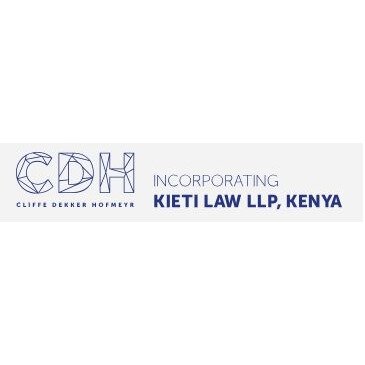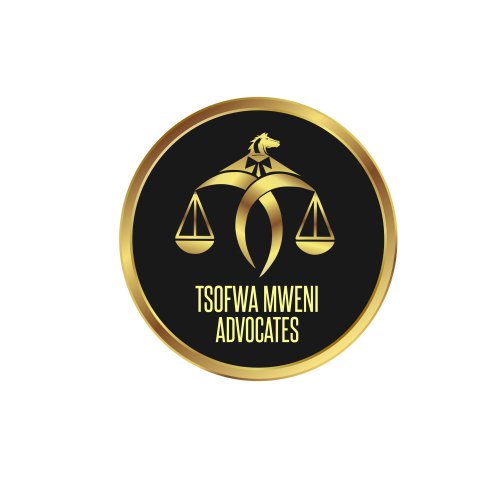Best Tax Increment Financing Lawyers in Kenya
Share your needs with us, get contacted by law firms.
Free. Takes 2 min.
Or refine your search by selecting a city:
List of the best lawyers in Kenya
Legal guides written by Adroit Law LLP:
- Kenya Launches Digital Nomad Visa: A Gateway for Remote Workers
- Navigating the Payment System License Maze in Kenya
- Navigating the Complexities of Mining Licenses and Permits in Kenya: A Look into Artisanal and Large-Scale Operations
About Tax Increment Financing Law in Kenya
Tax Increment Financing (TIF) is a public financing method that Kenya has adopted to support the funding of public infrastructure and community improvement projects. TIF operates by using the future incremental tax revenue anticipated from an increase in property value due to the infrastructure investment to finance the initial development costs. This method aims to stimulate development in specific areas, typically those that are underdeveloped or where private sector investment is lacking. The Nairobi Urban Renewal and Infrastructure Funding Act 2016 is among the key legislations that facilitate TIF projects in Kenya.
Why You May Need a Lawyer
Engaging with Tax Increment Financing can be complex, given the involvement of various stakeholders such as government agencies, investors, developers, and the community. Legal counsel may be necessary in several circumstances:
- Understanding the legal framework and regulatory requirements pertaining to TIF in Kenya.
- Negotiating agreements with governmental bodies or private stakeholders involved in TIF projects.
- Drafting and reviewing contracts, ensuring compliance with local laws and regulations.
- Addressing disputes or litigation issues that might arise during or after the implementation of TIF initiatives.
- Providing legal advice on potential risks and mitigation strategies associated with TIF projects.
Local Laws Overview
The legal context of Tax Increment Financing in Kenya is shaped by both national policies and local legislations, with notable aspects including:
- Authorization and Scope: TIF projects must be authorized by local government entities, with predefined geographic boundaries where they apply.
- Public Participation: Local laws mandate that public consultation be held to involve community stakeholders in the planning of TIF projects.
- Revenue Allocation: Incremental tax revenues are earmarked exclusively for repaying the TIF debt and funding development projects as specified.
- Regulatory Compliance: All projects must comply with existing urban planning and environmental regulations.
Frequently Asked Questions
What is Tax Increment Financing used for in Kenya?
TIF is used to fund infrastructure improvements and development in areas needing redevelopment or economic stimulation.
How does TIF generate funds for development?
TIF generates funds by capturing the increase in tax revenue resulting from rises in property values within the designated TIF district.
Who can initiate a TIF project?
TIF projects can be initiated by local authorities in collaboration with private developers or investors.
Is public consultation part of the TIF process?
Yes, public consultation is a crucial component, ensuring that community needs and concerns are addressed.
What are the risks associated with TIF?
Potential risks include project financing shortfalls, mismanagement of funds, and disputes among stakeholders.
Are TIF funds guaranteed?
No, TIF funds are not guaranteed as they are dependent on the future increase in property tax revenue.
What happens once a TIF district is established?
Infrastructure improvements are made, property values rise, and the increment in tax revenue is used to repay the underlying debt.
Can any area be designated as a TIF district?
Not all areas qualify; they must demonstrate a need for redevelopment or economic growth stimulation.
What role do local governments play in TIF?
Local governments approve TIF projects, manage funding, and ensure compliance with regulatory and legislative requirements.
Can TIF address affordable housing needs?
Yes, TIF can be used to fund affordable housing within the designated districts to meet community demands.
Additional Resources
For further assistance in understanding Tax Increment Financing in Kenya, consider visiting or contacting:
- Nairobi Urban Renewal and Infrastructure Office
- Ministry of Land, Housing and Urban Development
- Kenya Urban Roads Authority
- Kenya Revenue Authority
- Local Chapters of the Law Society of Kenya
Next Steps
If you need legal assistance with Tax Increment Financing, consider the following steps:
- Consult with a lawyer specialized in real estate and public finance law.
- Gather all relevant information and documentation about the TIF project you are involved in or interested in.
- Ensure that all stakeholders are informed and involved, facilitating transparency and communication.
- Contact governmental bodies involved in the urban planning and development processes for guidance and support.
Lawzana helps you find the best lawyers and law firms in Kenya through a curated and pre-screened list of qualified legal professionals. Our platform offers rankings and detailed profiles of attorneys and law firms, allowing you to compare based on practice areas, including Tax Increment Financing, experience, and client feedback.
Each profile includes a description of the firm's areas of practice, client reviews, team members and partners, year of establishment, spoken languages, office locations, contact information, social media presence, and any published articles or resources. Most firms on our platform speak English and are experienced in both local and international legal matters.
Get a quote from top-rated law firms in Kenya — quickly, securely, and without unnecessary hassle.
Disclaimer:
The information provided on this page is for general informational purposes only and does not constitute legal advice. While we strive to ensure the accuracy and relevance of the content, legal information may change over time, and interpretations of the law can vary. You should always consult with a qualified legal professional for advice specific to your situation.
We disclaim all liability for actions taken or not taken based on the content of this page. If you believe any information is incorrect or outdated, please contact us, and we will review and update it where appropriate.
Browse tax increment financing law firms by city in Kenya
Refine your search by selecting a city.

















